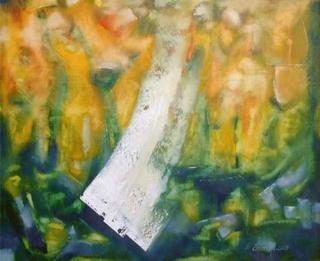Seperation of church and state
Nearly every Monday for six months, as many as a dozen congressional aides — many of them aspiring politicians — have gathered over takeout dinners to mine the Bible for ancient wisdom on modern policy debates about tax rates, foreign aid, education, cloning and the Central American Free Trade Agreement.
Now this could be a good thing, but unfortunately, too much of Evangelical thought has been attached to the agenda of the Republican party. It sounds like they are searching the Bible to justify the Republican position. Insteading of working towards changing hearts, too many Christians want to legislate morality.



